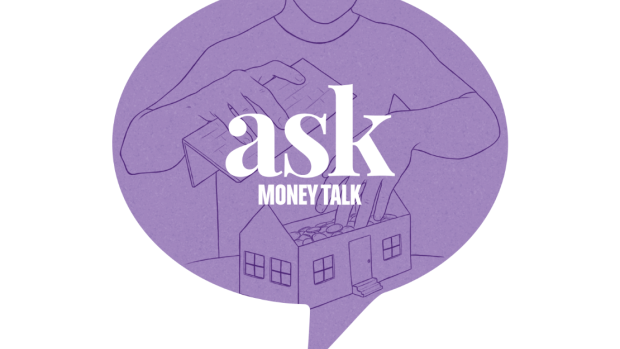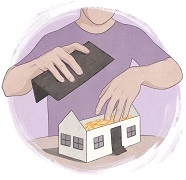May 15, 2019
MoneyTalk: How much should I borrow from my line of credit?
Presented by:


How much is the most we should take out of our home equity line of credit? Our home is paid off but we’re retired and think we will sell the house in the next decade.
First, a home equity line of credit (HELOC) is neutral. Whether it will help you out or get you into trouble really depends on what you do with it.
For example, let’s say you suddenly needed $10,000 to replace a furnace that conked out one cold night. You may have sufficient funds in your retirement savings for a new furnace but there are considerations. For instance, you may not want to sell investments until they reach their goals. And if you were to withdraw $10,000 from your retirement savings, it may put your income into another tax bracket. So, if you can plan to pay back the line of credit over a couple years, leaning on a HELOC in this case might make sense. This scenario is based on you not having any other debt problems and your wealth plan being on track. So far, so good.
But let’s be clear about the advantages and drawbacks of a HELOC. A line of credit like that is different from, say, a car loan, where you would receive a lump sum for a purchase. This traditional secured loan would be managed with a schedule of payments, and a date when the loan must be paid off, known as the amortization schedule. We pay back a portion of the loan with interest, usually monthly, until the loan is paid off.
But with a line of credit you are not under any obligation to actually use it and therefore no interest will be charged. There is a certain maximum amount of money you can access (up to 80 per cent of the value of your home) but if you only need a small portion of that amount, you’ll only be charged interest on the portion you take out.1 And, unlike a traditional secured loan, there is no date when the funds have to be paid back.
One of the advantages of a home equity line of credit is the flexibility. If you are faced with occasional bills that you can’t meet easily month to month (unexpected home repairs, kids’ education fees, vacations) you can use it and pay it off over a year or two. If you don’t need to use it for another five years or more, there is no impact although it is always there if you need it.
 However, some people end up using their HELOC like an ATM — easy money whenever you want it. This is where the danger can come in because, if you are in the habit of dipping into it, it’s easy to dismiss the interest charges every month if they quietly appear on your monthly statement. There may be a temptation because of the amount of money available. People must be disciplined to manage the repayment and unfortunately, the ease of access allows some of us to happily grab this money without thinking of the consequences.
However, some people end up using their HELOC like an ATM — easy money whenever you want it. This is where the danger can come in because, if you are in the habit of dipping into it, it’s easy to dismiss the interest charges every month if they quietly appear on your monthly statement. There may be a temptation because of the amount of money available. People must be disciplined to manage the repayment and unfortunately, the ease of access allows some of us to happily grab this money without thinking of the consequences.
And there are consequences. If you are drawing on the line of credit every month to pay off credit card bills and have no plan to pay off the line of credit except the sale of your house down the line, that’s poor planning. You’re likely living above your means and the line of credit is an expensive way of dealing with spending that is out of control. What would happen if you suddenly had a giant home repair bill?
And while you mention that you plan on selling your home 10 years down the road, it seems like you may be counting on the sale to pay back the line of credit. But as you know, a lot could happen in 10-years’ time which can make you change your mind. The future value of your home is not guaranteed, and you should consider that the sale of your home may help to fund accommodations and long-term health care as you age. And that’s not saying anything about what you might want to leave in your estate for your family. Drawing big time on your line of credit (and paying only the monthly interest charges) can make planning for future events that much harder.
So, here are options that you may want to consider. I can only push and prod you to reflect on your larger financial situation, what your goals are and how you’re going to reach them. If you can access your line of credit without endangering those considerations, it can be helpful. If a line of credit could harm your wealth plan or even make a bad situation worse, you may want to consider speaking to an advisor to pursue more prudent strategies.
Bernice Marien has been a chartered accountant for more than 30 years. She appeared in MoneyTalk Life addressing the question, When is the best time to take your pension? She hopes to escape the Canadian winters in her retirement.









